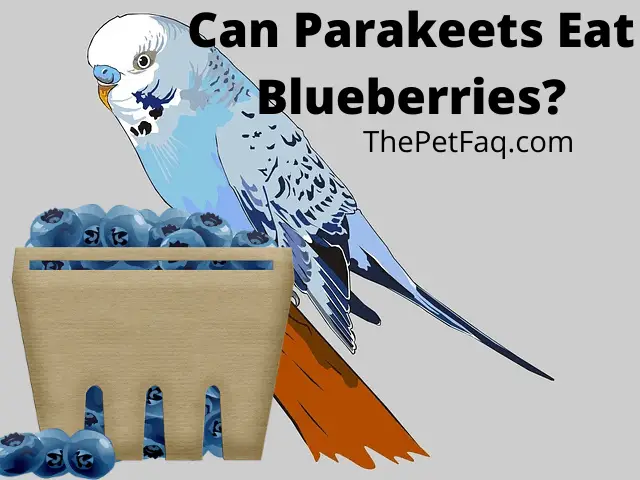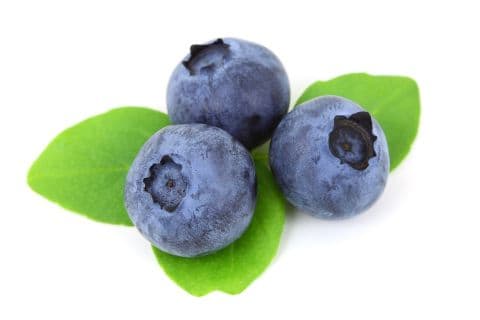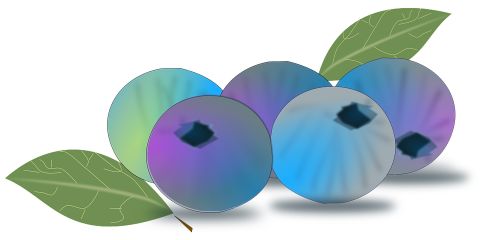Can parakeets eat blueberries? If you’re a big fan of blueberries, and always have some at home, you might wonder if it’s possible to share some of these delicious, nutritious berries with your feathery friend. After all, for humans, these berries are among the healthiest on earth so perhaps they’ll also be beneficial for your budgie to consume.
This post is all about answering that question. In order to do so, I’m first going to take a quick look at the nutrient content of blueberries. That way, we can determine whether or not parakeets can safely consume them. It will also give us an idea of what exactly we’re putting into our budgie’s beak when we’re giving them some of these delicious berries. After that, I will discuss how to best feed them, how much of it they can eat, things to watch out for, and more. Let’s dig in!

The short answer to the question at hand is this: Parakeets can most definitely eat blueberries, they’re a healthy fruit to give to them due to their high antioxidant and vitamin content. Since the berries are small, you can feed them whole, there’s no need to cut them into smaller pieces. The seeds are also not a problem due to their small size. Do make sure to properly wash the berries before feeding, because the skin contains pesticides.

What’s in a blueberry?

As I’ve said in the introduction, whenever I discuss whether or not an animal can eat a certain food I always like to take a look at the nutrient content of that particular food item. That way, we’ll get a good idea of what nutrients exactly our parakeet is eating.
With that being said, according to nutrition data, 3.5 ounces (100 grams) of blueberry contains the following macronutrients:
- 57 calories
- 84% water
- 0.7 grams of protein
- 10 grams of sugar
- 2.4 grams of fiber
- 14.5 grams of carbs
- 0.3 grams of fat
As you can see in the overview above, blueberries are very low in calories and fat while being high in fiber, water, and sugar. Since obesity is a common problem among parakeets it’s important that you give them food that’s low in calories and fat. Blueberries fit that description perfectly! They’re also a good source of fiber, which will aid their digestion.
Micronutrients
But that’s not the whole story, so far we’ve only taken a look at the macronutrients, but these berries are also very rich in micronutrients (vitamins & minerals). In particular, blueberries are very rich in vitamin K1, vitamin C, and manganese.
Vitamin K1 is one of the most important vitamins for birds, it helps transport calcium through the body and promote proper bone development.
Vitamin C is an antioxidant. Antioxidants help prevent oxidative stress and damage from free radicals.
Manganese is also great for birds. It helps them grow and helps their body work properly.
Precautions when feeding blueberries to parakeets

The most important thing to watch out for is that you properly wash the blueberries before feeding them. Unfortunately, almost all fruits and vegetables in our modern society are contaminated with pesticides, and blueberries are no exception. A staggering 52 different kinds of pesticide residue have been found on them in the USDA Pesticide Data Program. These do a great job of preventing insects from eating the crops but are not good for our birds to ingest.
The best way to get rid of pesticides is by soaking the berries in a mixture of baking soda and water. Studies have proven that this is the most efficient way of getting rid of pesticides so I highly recommend using this method.
The second thing you need to watch out for is that you do not overfeed your bird on these berries. Yes, they are healthy, but they are also quite high in sugar. Giving your bird too much of it is not a good thing.
The third thing you should be careful about is that you do not feed your bird canned blueberries. These contain preservatives and are too high in sugar to be healthy for your parakeet. Dried fruit, on the other hand, is okay, because those have almost the same nutritional value as their fresh counterparts.
How many blueberries can parakeets eat?

Fruit should be no more than 20 to 25% of your budgie’s daily food intake. However, that doesn’t mean that you can make 20% of their daily diet consist of blueberries. They need a wide range of many different kinds of fruits and vegetables to thrive. After all, different fruits and vegetables have different nutrients, so it’s much more beneficial to give them a diverse range of fruits and veggies.
Giving your budgie a couple of these berries is no problem, as long as you make sure that you mix up the fruits you give them and don’t overfeed them, there shouldn’t be any problems at all.
Other fruits that parakeets can eat
Since I’ve just told you that you should give your bird a variety of different kinds of fruits and veggies, you might wonder what other plants they can safely eat. Here’s a quick list to get you started:
- Blackberries
- Raspberries
- Strawberries
- Apples (Make sure to remove the seeds as those are toxic)
- Watermelon
- Cucumber
- Mango
- Oranges
- Cherries
- Nectarines
Do parakeets like blueberries?
Parakeets can be quite picky eaters and they all have their own likes and dislikes. Generally speaking, parakeets do really like eating blueberries. However, some might not care for them all that much. If that’s the case, there are many other fruits they can eat instead. Refer to the list above for some ideas. Surely your bird will like some of the many options that are available.
How to feed blueberries to parakeets
Now that you know that you can safely feed these berries to your bird you might wonder how to go about feeding them. Luckily, it’s a very easy process.
- Wash the fruit (ideally by soaking it in a mixture of water and baking soda for about 10 minutes)
- Give it to your bird.
- That’s it
Since blueberries are so small, they will fit into the beak of your bird without having to cut them, making the feeding process very simple and convenient.
I hope this guide answered all the questions you had about feeding blueberries to your bird! If you feel like I’ve missed something, or you still have a burning question, don’t hesitate to let me know by leaving a comment. I will get back to you as soon as possible with the answer. Good luck with the feeding!

- How Long Do American Eskimo Dogs Live? Important Factors and Care Tips - September 29, 2023
- Do American Bulldogs Need Grooming? Essential Tips and Care Guidelines - September 29, 2023
- Do Bengal Cats Enjoy Playing? Essential Tips for Keeping Them Active - September 29, 2023